College of Agriculture & Environmental Sciences
Unisans among top 2% scientists worldwide
At least twenty Unisans have been named on a list of the top 2% of the most-cited scientists in various disciplines globally. Based on data from Elsevier’s Scopus, the abstract and citation database, the report was prepared by Professor John Ioannidis of Stanford University and his team and published in the journal PLOS Biology.
Professor Thenjiwe Meyiwa, Vice-Principal of Research, Postgraduate Studies, Innovation, and Commercialisation, is gratified by the showing of the academics. “The appearance of these Unisa scientists on this prestigious list has placed the university on the global map of science and has brought great pride to the institution. I congratulate all of the scientists and their hard work and commitment to furthering science,” she lauded.
According to Ioannidis, the database includes 100 000 top scientists in 22 scientific fields and 176 subfields and provides standardised information on citations, h-index, co-authorship-adjusted hm-index, citations to papers in different authorship positions, and a composite indicator. Separate data are shown for career-long and single year (2019) impact and Unisans appear on either or both of the lists.
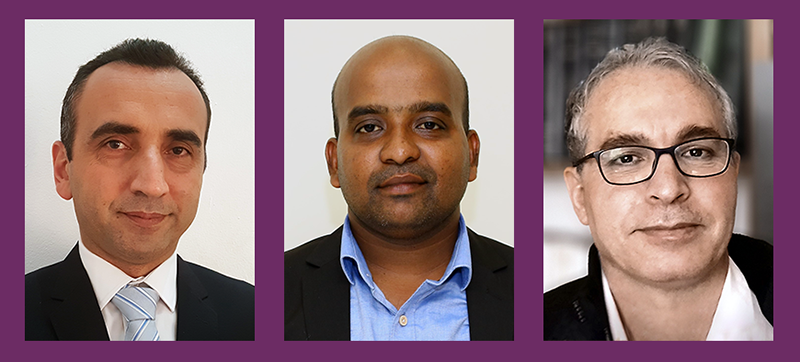
Hossein Jafari, Professor in Applied Mathematics, Department of Mathematical Sciences, College of Science, Engineering, and Technology I feel humbled that I made it to the list of the top 2% scientists in the world as compiled by Stanford University (USA). Since 2017 to date, I am also on the list of the Essential Science Indicators (ESI) as a top researcher by Web of Science.
I dedicate this honour, achievement, and success to my great family of Unisa. I owe this honour to those who played a crucial role in my education. I acknowledge contributions of my esteemed collaborators, my esteemed colleagues in the College of Science, Engineering, and Technology, as well as my hardworking graduate students. What I have achieved would not have been possible without the grace and support of my lovely caring wife, my loving son, and my dear family.
I hope in the future more colleagues will appear on the list of the top 2% scientists in the world.
Kaviyarasu (Kevi) Kasinathan, Senior Research Fellow of the UNESCO-Unisa Africa Chair in Nanosciences and Nanotechnology, College of Graduate
Studies I am pleased to learn that my science excellence has placed me in the top scientist position in the recent Stanford international ranking. This validates my multidisciplinary research in energy, biomedical, and materials engineering carried out under the UNESCO-Unisa Africa Chair in Nanosciences and Nanotechnology. As a Senior Research Fellow, I am proud of this achievement with Professor Malik Maaza as a supervisor and will continue to thrive on the multidisciplinary research for global impact.
Malik Maaza, Professor and incumbent of the UNESCO-Unisa Africa Chair in Nanosciences and Nanotechnology, College of Graduate Studies
This achievement is not personal but reflects the efforts of all Unisa staff and the institutional visionary investment in R&D. This achievement and many to come is a bounce-back of the Unisa Science Campus platform by Unisa and its leadership. Certainly, this early Christmas gift from this comprehensive new Stanford University metric study would boost the MiT-Shanghai/QS ranking of Unisa.
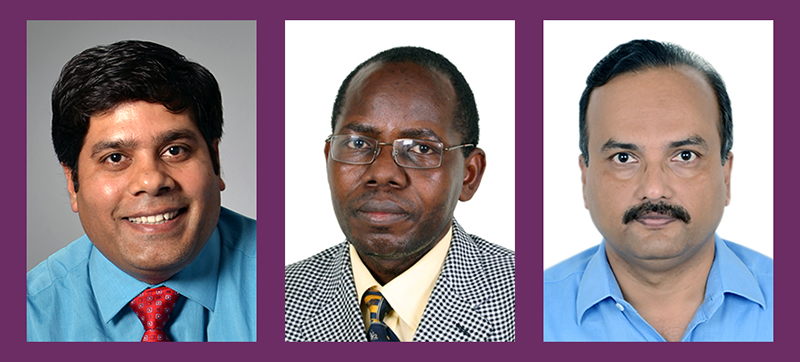
Ajay Kumar Mishra, Research Professor, Institute for Nanotechnology and Water Sustainability, College of Science, Engineering, and Technology
I feel humbled, enthusiastic, honoured, and highly motivated for recognition as one of the top 2% impactful scientists in the world as compiled by Stanford University. Such recognition will keep me and my research team motivated to carry out the high-quality research for making impactful publication.
I would extend my thanks to the research group members, especially master’s, doctoral, and postdoctoral researchers. My gratitude goes to my team members, funding agencies, collaborators, and my family. I also express my warmest thank to the Unisa management for their constant motivation and support.
My research is multidisciplinary with the focus on nanotechnology and wastewater treatment. The objective is to provide a holistic approach to target a green future though the research. The research findings would provide basic scientific principles and outcomes for further research and development leading to low-cost commercially available products and the delivery of clean water.
Nicholas M Odhiambo, Professor of Economics and Head: Macroeconomic Policy Analysis (MPA) Research Flagship Programme, College of Economic and Management Sciences
I am deeply humbled and honoured to hear that I have been listed among the top 2% of impactful scientists in the world. This clearly shows the impact and visibility of my research. I am also delighted to see that two of Unisa’s researchers included on this list are from our Macroeconomic Policy Analysis (MPA) programme—a programme that I developed in 2012 and which, to date, has made a significant contribution to the scholarly body of knowledge in terms of its research outputs and student graduations. Our ultimate goal as a programme is to increase the visibility of research outputs from Unisa, South Africa, and Africa on the global map of research. Our research is driven by three key pillars—passion, dedication, and focus.
Ashok Raichur, Professor in Materials Engineering, Indian Institute of Science, and Visiting Professor, Institute of Nanotechnology and Water Sustainability (iNanoWS), College of Science, Engineering, and Technology
It’s an honour to be listed in the top 2% of scientists worldwide. It reaffirms that the work being done at Unisa is of high quality and impact. Collaborating with faculty at Unisa has been an enriching experience for me. Unisa and, in particular, iNanoWS are on track to achieve even better things in the coming years. I would like to thank the leadership at Unisa for the support provided.
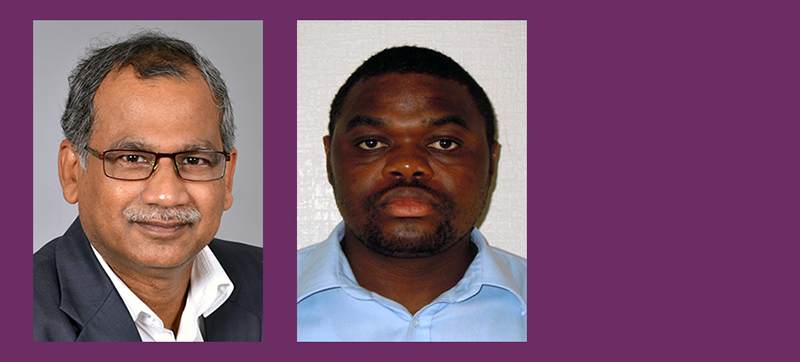
Sekhar Ray, Professor, Department of Physics, College of Science, Engineering, and Technology
When I came to know that my name was on the list of the top 2% scientists in the world, I was very excited. It made me emotional too. I realised that the science and technology communities of the world have recognised me in the right way. They have valued my research work. My world rank in the Applied Physics category is 2 718 out of 224 856 authors. I am impressed with this recognition and quite happy about it. To date, this has been the best achievement in my research career. I am proud to be an active research scientist in Unisa.
My research work is mainly on carbon and carbon nanostructured materials, which includes graphene, carbon nanotubes, fullerenes and other materials. More specifically, I studied the electronic and magnetic behaviours for future device-based applications.
Simplice Asongu, Professor, Department of Economics, College of Economic and Management Sciences
“I thank Unisa for providing me with a platform on which to contribute to knowledge by means of scientific publications. However, the rankings can be better in future if Unisa provides more opportunities to enable me to realise the maximum of my potentials. I am an external contractor and getting me on board as a research associate can be worthwhile.
Professor Gaotsiwe Rampho, Head of Department, Department of Physics, College of Science, Engineering, and Technology, was full of praise for the three physicists on the list. “It gives me great pleasure to announce that three physicists, namely Sekhar Ray, Malik Maaza, and Jan van der Merwe (deceased), from the Department of Physics, make it onto the list of the top 2% impactful scientists in the world. Congratulations to our world-renowned physicists. It is truly an honour to work with them.”
The report by John P A Ioannidis, Kevin W Boyack, and Jeroen Baas appears in Updated science-wide author databases of standardised citation indicators in PLOS Biology, October 16, 2020.
You can download the complete career list here and the 2019 list here.
*By Sharon Farrell, Editor, Department of Institutional Advancement
Career
Simplice Asongu, Professor, Department of Economics, College of Economic and Management Sciences
Ameenah Gurib-Fakim, Previous Vice-Chancellor of the University of Mauritius and Managing Director for the Centre for Phytotherapy and Research, Ebène-Mauritius, and Associate of the UNESCO-Unisa Africa Chair in Nanosciences and Nanotechnology
Hossein Jafari, Professor in Applied Mathematics, Department of Mathematical Sciences, College of Science, Engineering, and Technology
Antonieta Jerardino, Associate of the Department of Anthropology and Archaeology, College of Human Sciences
Monga Luhandjula, Professor, Department of Decision Sciences, College of Economic and Management Sciences
Malik Maaza, Professor and incumbent of the UNESCO-Unisa Africa Chair in Nanosciences and Nanotechnology, College of Graduate Studies
Nelson Maldonado-Torres, Professor in the Department of Latino and Caribbean Studies, Rutgers University, and Fellow in the Department of Political Sciences, College of Human Sciences
Nicholas Odhiambo, Professor of Economics and Head: Macroeconomic Policy Analysis (MPA) Research Flagship Programme, College of Economic and Management Sciences
Ashok Raichur, Professor in Materials Engineering, Indian Institute of Science, and Visiting Professor, Institute of Nanotechnology and Water Sustainability (iNanoWS), College of Science, Engineering, and Technology
Sekhar Ray, Professor, Department of Physics, College of Science, Engineering, and Technology
Michael Scurrell, Emeritus Professor, University of the Witwatersrand, and Research Professor, Civil and Chemical Engineering Department, College of Science, Engineering, and Technology
Jan van der Merwe, Professor Extraordinarius, Department of Physics (1990 to 2003, deceased), College of Science, Engineering, and Technology
Single year (2019)
Simplice Asongu, Professor, Department of Economics, College of Economic and Management Sciences
Louise Barrett, Research Fellow, Applied Behavioural Ecology and Ecosystem Research Unit (ABEERU), College of Agriculture and Environmental Sciences
Emile Franc Doungmo Goufo, Associate Professor, Department of Mathematical Sciences, College of Science, Engineering, and Technology
Ameenah Gurib-Fakim, Previous Vice-Chancellor of the University of Mauritius and Managing Director for the Centre for Phytotherapy and Research, Ebene-Mauritius, and Associate of the UNESCO-Unisa Africa Chair in Nanosciences and Nanotechnology
Hossein Jafari, Professor in Applied Mathematics, Department of Mathematical Sciences, College of Science, Engineering, and Technology
Antonieta Jerardino, Associate of the Department of Anthropology and Archaeology, College of Human Sciences
Kaviyarasu Kasinathan, Senior Research Fellow of the UNESCO-Unisa Africa Chair in Nanosciences and Nanotechnology, College of Graduate Studies
Ali Talha Khalil, Fellow, UNESCO-Unisa Africa Chair in Nanosciences and Nanotechnology
Malik Maaza, Professor and incumbent of the UNESCO-Unisa Africa Chair in Nanosciences and Nanotechnology, College of Graduate Studies
Nelson Maldonado-Torres, Professor in the Department of Latino and Caribbean Studies, Rutgers University, and Fellow in the Department of Political Sciences, College of Human Sciences
Bhekie Mamba, Executive Dean, College of Science, Engineering, and Technology
Ajay Kumar Mishra, Research Professor, Institute for Nanotechnology and Water Sustainability, College of Science, Engineering, and Technology
Nicholas M Odhiambo, Professor of Economics and Head: Macroeconomic Policy Analysis (MPA) Research Flagship Programme, College of Economic and Management Sciences
Sekhar Ray, Professor, Department of Physics, College of Science, Engineering, and Technology
Michael Scurrell, Emeritus Professor, University of the Witwatersrand, and Research Professor, Civil and Chemical Engineering Department, College of Science, Engineering, and Technology
Lukas Snyman, Professor and incumbent of the Rand Water Board Chair: Electrical Engineering, College of Science, Engineering, and Technology
Bhekisipho Twala, Professor, Electrical and Mining Engineering, College of Science, Engineering and Technology (since left Unisa)
Publish date: 2020-11-25 00:00:00.0


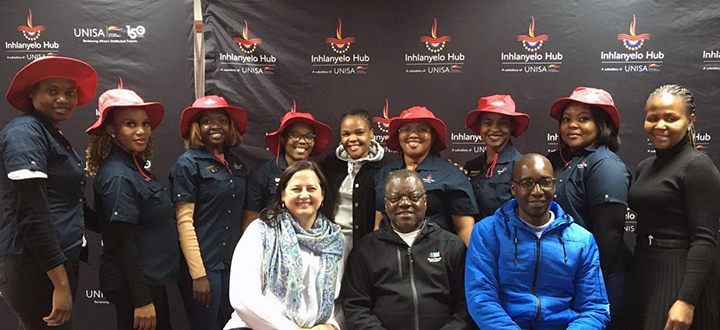 Women drone pilots continue their journey in the skies
Women drone pilots continue their journey in the skies
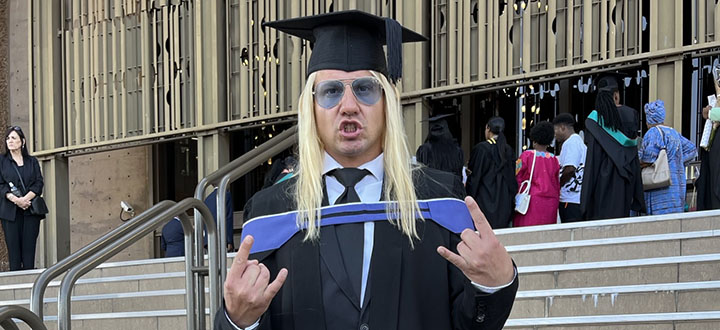 Don Cobra strikes a new chord: Musician earns a business degree
Don Cobra strikes a new chord: Musician earns a business degree
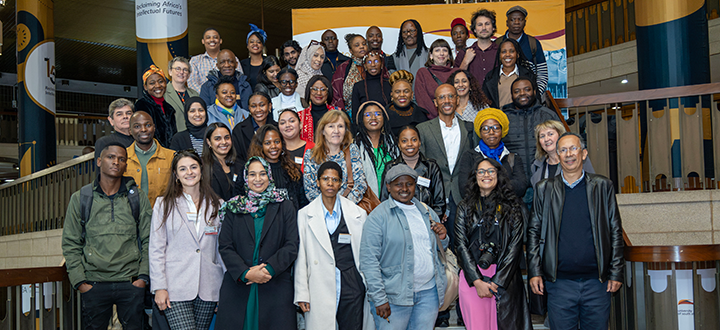 Black Planetary Studies takes centre stage at Unisa
Black Planetary Studies takes centre stage at Unisa
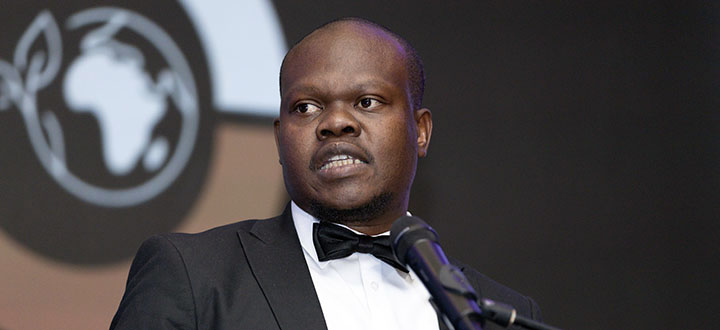 Unisa concludes its milestone 150th anniversary on a high note
Unisa concludes its milestone 150th anniversary on a high note
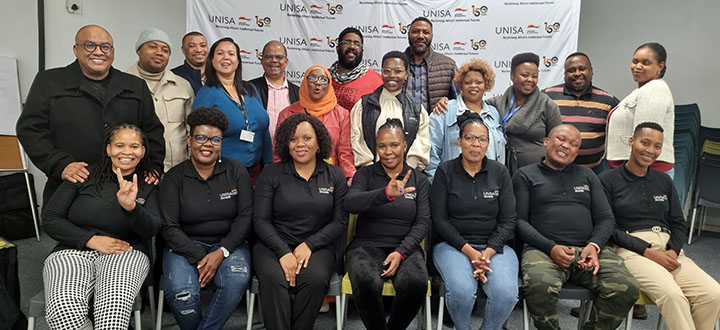 Empowering inclusive education: The role of ARCSWiD at Unisa
Empowering inclusive education: The role of ARCSWiD at Unisa